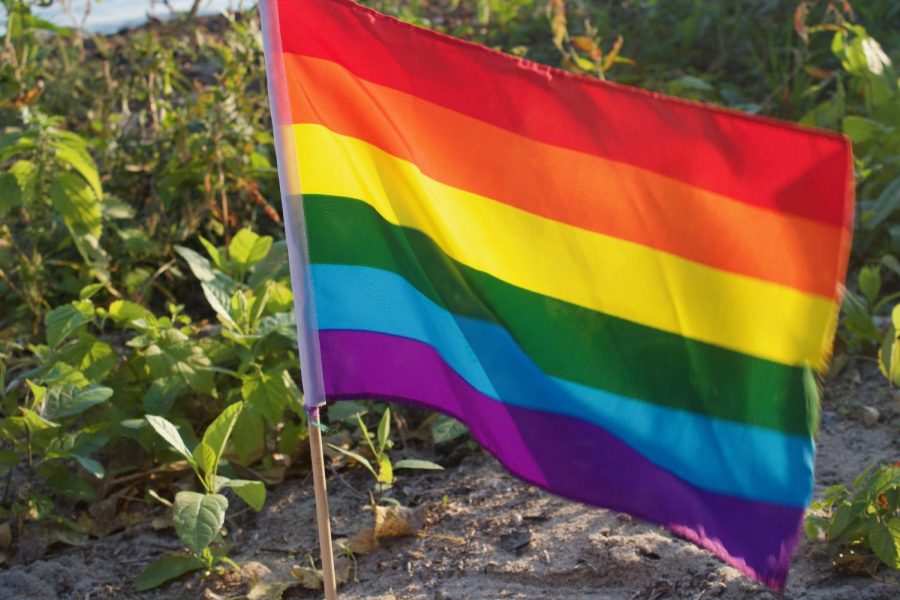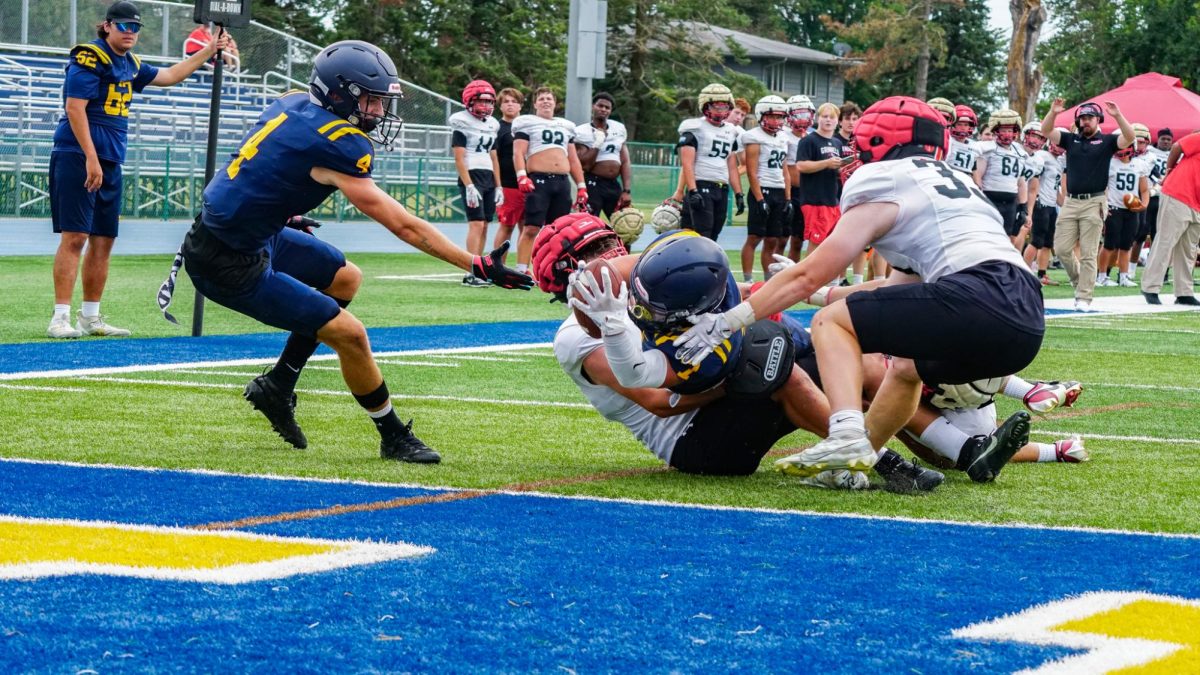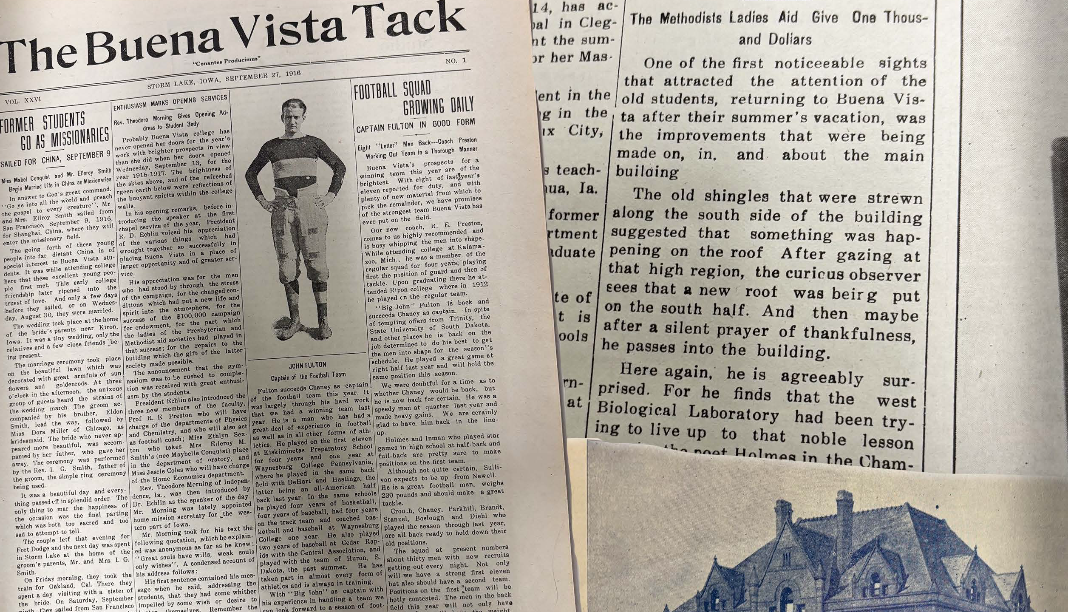National and Local Tensions Between Religious Freedom and LGBTQ+ Civil Rights
December 6, 2018
Imagine you are planning your wedding. You want everything to be perfect for your special day, from the cake to the flowers, the dinner and the dance. You finally commit to a venue and decide on a business to make your wedding cake. When you go to talk to the owner of the cake shop, he tells you he cannot make a cake for your wedding because you and your fiancée are a same-sex couple and gay marriage is against his Christian beliefs and teachings. You and your fiancée believe you have the right to the same service any other couple might receive. The cake shop owner believes he has the right to religious freedom and is able to determine who and for what he creates his cakes for. Who is correct in this case? The 1st Amendment states that an individual has the right to express his or her religious beliefs, while the 14th Amendment preaches equality for all.
Progress Through 40 Years
Over the last forty years the LGBTQ+ community has taken major steps towards civil rights equality in the United States. According to the Harvey Milk Foundation, Harvey Milk made history in the 1970’s by becoming the first openly gay California elected official and an LGBTQ advocate. Unfortunately, Milk was assassinated a year after he was elected by a former city supervisor. Milk was posthumously awarded the Presidential Medal of Freedom in 2009. Milk’s election and assassination inspired the LGBTQ+ community to fight harder for equal treatment socially and politically.
Progress for the LGBTQ+ community can be seen in key Supreme Court wins, two of the most important cases being Lawrence v. Texas and Obergefell v. Hodges. In the case of Lawrence v. Texas, in 2003 the Supreme Court ruled 6-3 that the Texas law that criminalized same-sex consensual sex was unconstitutional under the fourteenth amendment, which guarantees all U.S. citizens equal protection under the law. This ruling led to the nullification of dozens of other states that had laws just like Texas, making same-sex intercourse legal throughout the United States.
Twelve years later in Ohio, the Supreme Court heard the case of Obergefell v. Hodges (2015) and addressed the question of who could legally marry in the United States. According to Oyez, along with Obergefell v. Hodges there were similar cases in Michigan, Kentucky, and Tennessee. Together these cases led to the legalization of gay marriage in the United States. But the case of Obergefell v. Hodges is cited as the official national legalization of gay marriage. The Supreme Court ruled 5-4 in favor of Obergefell and relied again on the 14th Amendment’s guarantee of equal protection and acknowledged that “The Constitution promises liberty to all within its reach.” The ruling of Obergefell v. Hodges struck down the Defense of Marriage Act of 1996, which stated that marriage meant “only a legal union between one man and one woman as husband and wife.”
Surge in Religious Liberty Claims
While there has been great progress made for the LGBTQ+ community, there seems to be a surge in claims of religious liberty justifying the rolling back of civil right gains for LGBTQ+ people. One of the most popular and most recent cases claiming religious liberty against the civil rights of LGBTQ+ people is Masterpiece Cake Shop v. Colorado Civil Rights Commission. According to the case Masterpiece Cake Shop v. Colorado Civil Rights Commission, Jack Phillips, the owner of Masterpiece Cake Shop, refused to make a wedding cake for gay couple David Mullins and Charlie Craig because gay marriage was against Phillips’ religious beliefs. After the refusal, Mullins and Craig filed a complaint with the Colorado Civil Rights Commission (CCRC). The CCRC decided to take the case and sue Jack Phillips based on Colorado’s anti-discrimination law. In 2015 the Colorado Court of Appeals ruled in favor of Mullins, Craig, and the Colorado Civil Rights Commission. However, in 2018 the Supreme Court reversed the lower court’s ruling. This means that Phillips was still allowed to use his religious liberties to deny service based on his religious beliefs.
Corporation’s and business are also using religious liberty to justify and minimize civil rights for LGBTQ+ individuals. The American Family Association, Focus on the Family, and the Alliance for Marriage are all organizations that use religious liberty to justify their beliefs. What all these organizations have in common is they want to protect the traditional family and Christian values of marriage, the union between one man and one woman. These ideas stem from The Defense of Marriage Act which was mentioned above.
1st Amendment v. 14th Amendment
This leads to the question, to what extent can an individual claim religious liberty before it begins to infringe on the civil rights of LGBTQ+ individuals? There is no simple answer to this question.
When we look at cases such as the Masterpiece Cake Shop case, and most recently Washington v. Arlene’s Flowers, we can see that state courts have ruled in favor of the state’s anti-discrimination laws and the 14th Amendment. When the losing party petitions for a writ of certiorari, which is a petition requesting the Supreme Court review the case, it is seen in Masterpiece Cake Shop that the decision of the lower courts is reversed based on the infringement of the first Amendment’s free exercise and establishment clause.
According to Dr. Bradley Best, a professor of political science and a specialist on American politics, public policy, and public law, “The problem that I see in cases like Masterpiece cakeshop, for example, is that these generally applicable statues, I think, have to be respected because of the broader public interest that is served there and that people have to find a way to express and live out their religious beliefs within the context of these laws, these statues, these rules and regulations that serve the broader public interest. But even that is a very problematic position to take.”
The problem the courts are seeing is that the state courts are ruling in favor of their state anti-discrimination laws, while the Supreme Court is ruling in favor of the protection of an individual’s first amendment right to religious freedom based on the free exercise clause and the establishment clause. According to Alex Riley, the author of an essay called Religious Liberty vs. Discrimination: Striking a Balance When Business Owners Refuse Service to Same-Sex Couples Due to Religious Beliefs, “Thus far, the courts have not been receptive to religious business owners’ First Amendment claims and have not found the above showings to have been met. Because courts have, thus far, been unwilling to accept these First Amendment arguments, states concerned with protecting business owners’ religion-based objections to same-sex marriage should enact specific statutory protections to ensure these owners’ religious freedoms are respected and not infringed upon.”
Tensions in Iowa and Locally?
The tension between religious liberties and civil rights for LGBTQ+ individuals is certainly an issue nationally, but is it a local issue, in Iowa and on Buena Vista’s campus? Oneiowa.org publicizes Iowa’s anti-discrimination laws, which include protections against being discriminated based on employment, housing, public accommodations, education, insurance, credit, and jury selection “based on sexual orientation or gender identity.”
Members of Alliance, an LGBTQIA+ group on campus, say they haven’t seen or come in contact with discrimination based on their sexual orientation, and that they don’t feel there is any tension between the religious groups on campus and Alliance. Lena Gripp, a member of Alliance, said, “I think that BVU has a very diverse community and it’s easy to find somewhere to fit in and call home. I feel like there isn’t a lot of tension between religious groups and LGBTQIA+ groups.” Another Alliance member, Esmeralda Pineda, said something similar, “I haven’t personally seen this occur in our area and it could be because we have such a diverse community.”
Conclusion
Based on the information above, tensions between religious liberty and LGBTQ+ civil rights lean towards being a more national issue than an issue in Iowa and on BVU’s campus. State courts continue to grapple with tension between the 1st Amendment and the 14th Amendment though state courts rulings veer towards their state anti-discrimination laws and the 14th Amendment. While the Supreme Court drifts towards protecting individual’s 1st Amendment right to free speech and freedom of religion.
An important way to advance inclusion is through civil community conversations. Talk to one another and keep each other aware of tensions that are happening, not only in the religious world and LGBTQ+ world but in the entire world.
“The first step toward change is awareness. The second step is acceptance.” –Nathaniel Branden







